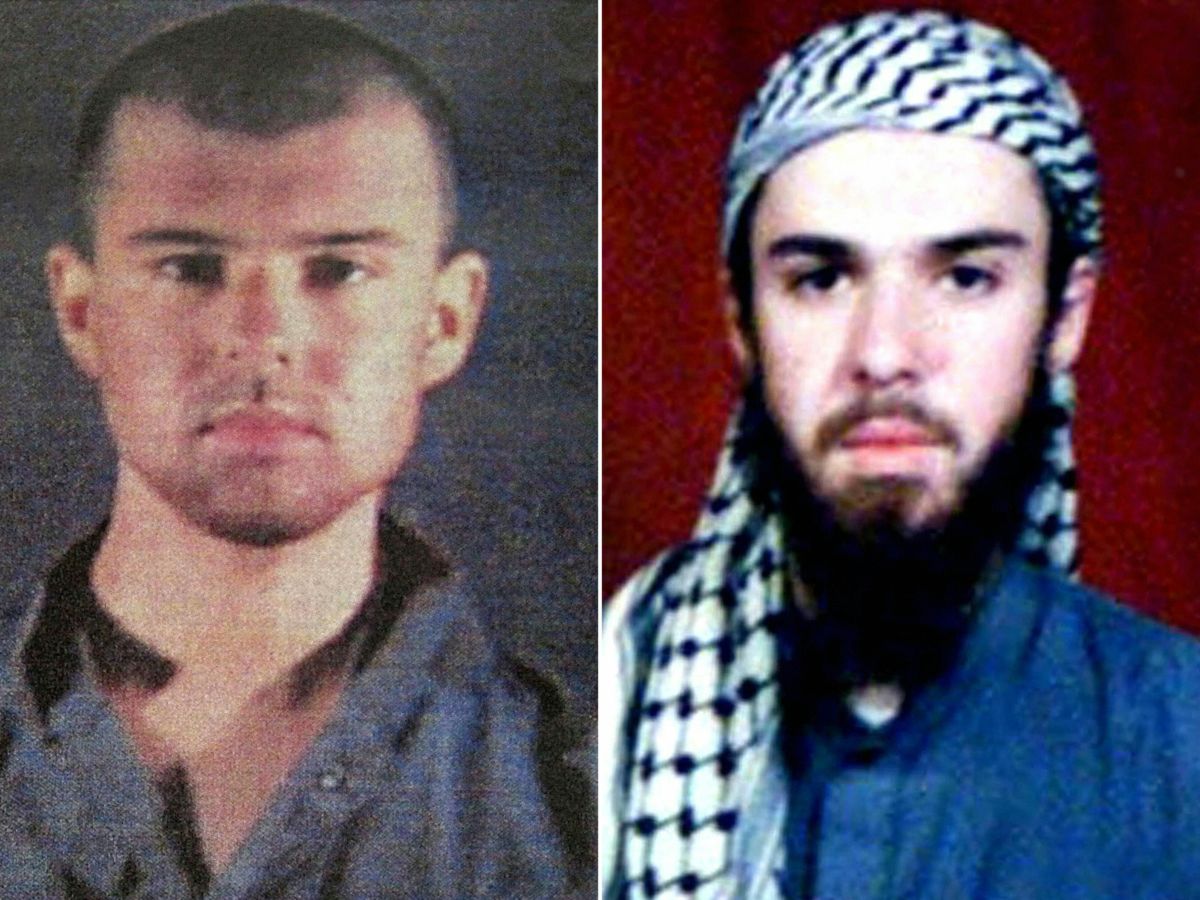John Walker Lindh, the so-called “American Taliban” who was captured on an Afghanistan battlefield in November of 2001, was released on Thursday from the federal penitentiary in Terre Haute, Indiana after serving 17 years of a 20-year sentence.
After his capture, Lindh was indicted on a slew of charges that included supporting terrorism and aiding al-Qaeda. In 2002, Michael Chertoff, who was at the time head of the Justice Department’s Criminal Division, directed prosecutors to offer Lindh a plea bargain: supplying services to the Taliban and carrying an explosive during the commission of a felony. Lindh accepted, and began serving his sentence in January of 2003.
“I did not go to fight against America, and I never did,” Lindh said at the time. “I have never supported terrorism in any form, and I never will…. I made a mistake by joining the Taliban. Had I realized then what I know now, I would never have joined them.”
“John is entirely innocent of any involvement in the [September 11] terror attacks, or any allegiance to terrorism,” wrote Lindh’s father Frank in 2011. “That is not disputed by the American government. Indeed, all accusations of terrorism against John were dropped by the government in a plea bargain, which in turn was approved by the U.S. district court in which the case was brought.”
Lindh maintained a clean record in prison and remains a devout Muslim. “I once told him I felt he had always been a Muslim,” his father wrote, “and only needed to find Islam in order to discover this in himself. He remained the loving son and brother he had always been.”
Lindh’s release from prison – three years early for good behavior – has angered the family of slain CIA officer Johnny “Mike” Spann, who interrogated Lindh after his capture. Shortly after that interrogation, Spann was killed in an uprising at the Afghanistan prison where Lindh was being held, and Lindh was returned to the U.S. to face charges of conspiring to kill Spann. The charge was never officially made, but Spann’s family remains furious at his release.
Seeing Lindh’s name in the headlines again after 17 years uncorked a number of grim memory jars. It is difficult to quantify just how thoroughly wretched the year 2002 was for this country, and for the world. The trauma of 9/11 became elongated aftermath in 2002, and we are still suffering from decisions and events which unfolded during that dark passage.
In 2002, the war in Afghanistan began in March with Operation Anaconda. The Bush administration busily stacked lies in preparation for the following year’s invasion of Iraq, which was approved by a majority of Congress in October. Sen. Paul Wellstone (D – Minnesota) was killed in a plane crash nine days after that vote.
The first prisoners of Camp X-Ray arrived at the Guantanamo Bay detention camp, and at least one of them – Ghassan al-Sharibi – is still there. The detention camp certainly is. George W. Bush signed the Homeland Security Act, a major step in the establishment of the modern surveillance state. The GOP expended its House majority during the midterms after heeding White House adviser Karl Rove’s advice to “run on the war.”
“On February 7, 2002,” writes Andrew Cohen for The Atlantic, “President George W. Bush signed a brief memorandum titled ‘Humane Treatment of Taliban and al Qaeda Detainees.’ The caption was a cruel irony, an Orwellian bit of business, because what the memo authorized and directed was the formal abandonment of America’s commitment to key provisions of the Geneva Convention. This was the day, a milestone on the road to Abu Ghraib, that marked our descent into torture – the day, many would still say, that we lost part of our soul.”
And then there was John Walker Lindh, the perfect gift for a Republican Party looking to consolidate power after 9/11. Demagogues on the right, along with a corporate media bent on cashing in on the pervasive fear of the day, exploited Lindh’s capture with ruthless efficiency. He’s from San Francisco! He’s a liberal! He’s a terrorist! Liberals are terrorists! One might be living right next door! To you! And your family! Here’s a flag! Vote Republican!
Look around. It worked.
Old bones. Old scars. Old pain. None of them rest easy. To no small degree, 2002 cemented the world we live in today. It is a world of permanent war, total surveillance and permissible torture where presidents peddle fear to win elections, marginalize minorities and disembowel a meddlesome Constitution. The seeds planted in 2002, the year John Walker Lindh accepted a plea for prison time, have grown into a bleak forest.
Seventeen years later, the war in Afghanistan grinds on. We have smart phones and self-driving cars now, but we are still trapped in 2002, trying to find some measure of peace in the stasis of permanent war.
Our most important fundraising appeal of the year
December is the most critical time of year for Truthout, because our nonprofit news is funded almost entirely by individual donations from readers like you. So before you navigate away, we ask that you take just a second to support Truthout with a tax-deductible donation.
This year is a little different. We are up against a far-reaching, wide-scale attack on press freedom coming from the Trump administration. 2025 was a year of frightening censorship, news industry corporate consolidation, and worsening financial conditions for progressive nonprofits across the board.
We can only resist Trump’s agenda by cultivating a strong base of support. The right-wing mediasphere is funded comfortably by billionaire owners and venture capitalist philanthropists. At Truthout, we have you.
We’ve set an ambitious target for our year-end campaign — a goal of $250,000 to keep up our fight against authoritarianism in 2026. Please take a meaningful action in this fight: make a one-time or monthly donation to Truthout before December 31. If you have the means, please dig deep.
